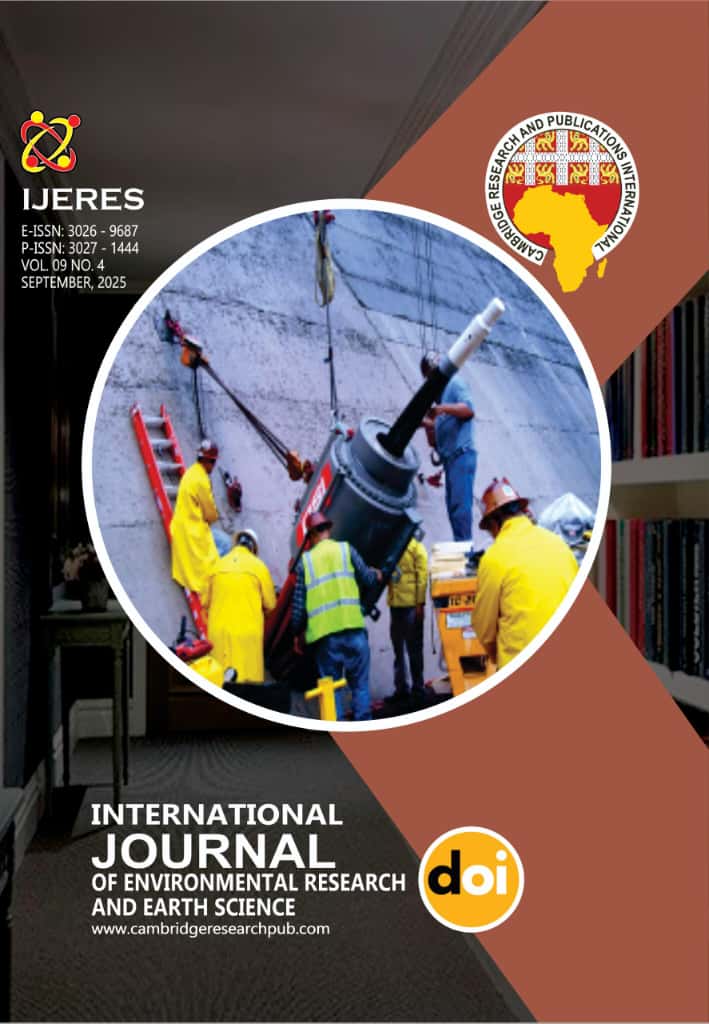CLIMATE-RESILIENT INFRASTRUCTURE AND ENVIRONMENTAL SUSTAINABILITY IN LAGOS, NIGERIA
Main Article Content
Abstract
Climate change poses significant risks to urban infrastructure and ecosystems, particularly in rapidly urbanizing African cities. Lagos, Nigeria’s center of excellence exemplifies these vulnerabilities due to its fast-paced growth, weak land-use enforcement, and recurrent climate-induced hazards such as floods and erosion. Hence, this study examines the interplay between climate-resilient infrastructure and environmental sustainability. The target populations for the study were the Real Estate Developers in Lagos as well as Officials of the Ministries of Physical planning, Environment and Waterfront Infrastructure development. Drawing on empirical evidence, policy analysis, and secondary literature, the research identifies fifteen major challenges affecting the integration of resilience and sustainability in Lagos, including institutional fragmentation, financial limitations, inadequate enforcement of planning regulations, and loss of natural buffers. The results of the weighted mean score analysis revealed that flooding, weak governance, and poorly regulated urban expansion rank among the most critical barriers. The findings corroborate existing literature that highlights how unplanned urban growth exacerbates ecological fragility in African cities, while also pointing to Lagos unique status as a center of excellence but yet struggling with rapid demographic and infrastructural pressures. The study concludes that without deliberate policy enforcement, sustainable financing mechanisms, and adoption of nature-based solutions, Lagos faces escalating adaptation costs and recurrent infrastructure failures. Recommendations include strengthening institutional capacity, mainstreaming climate risk assessments into infrastructure planning, promoting public-private partnerships, restoring ecological buffers, and enhancing community participation. By addressing these gaps, Lagos State can enhance resilience, safeguard livelihoods, and serve as a model for climate-sensitive urban development in sub-Saharan Africa.
Downloads
Article Details
Issue
Section

This work is licensed under a Creative Commons Attribution 4.0 International License.




